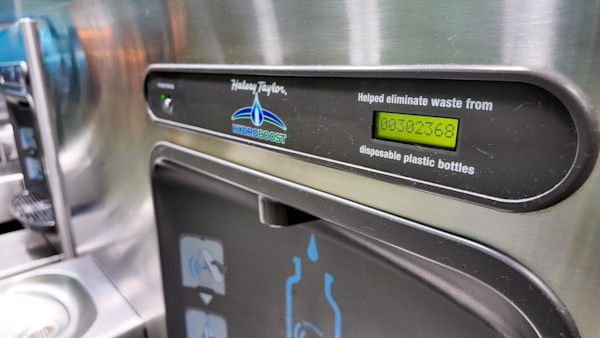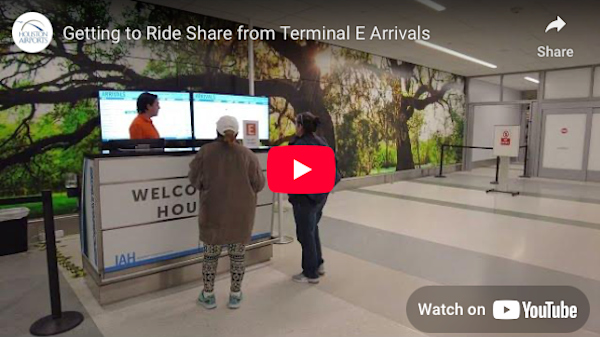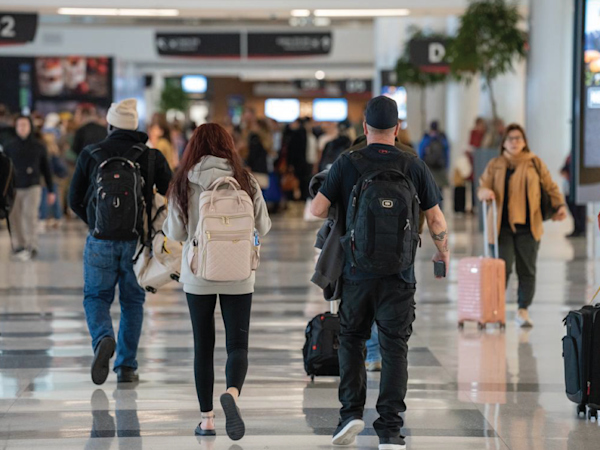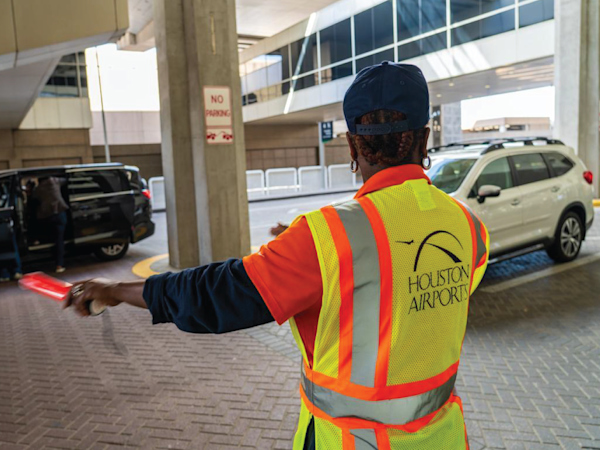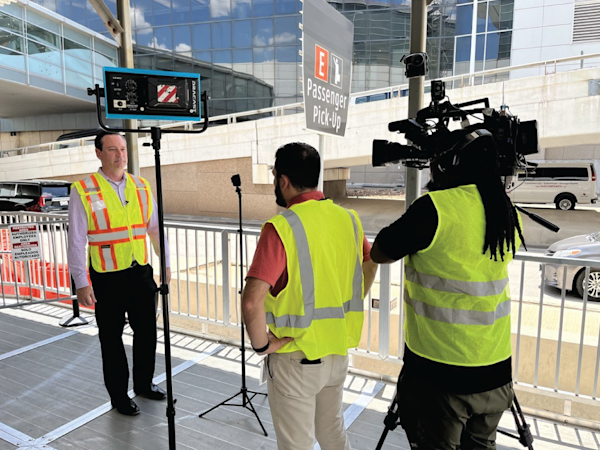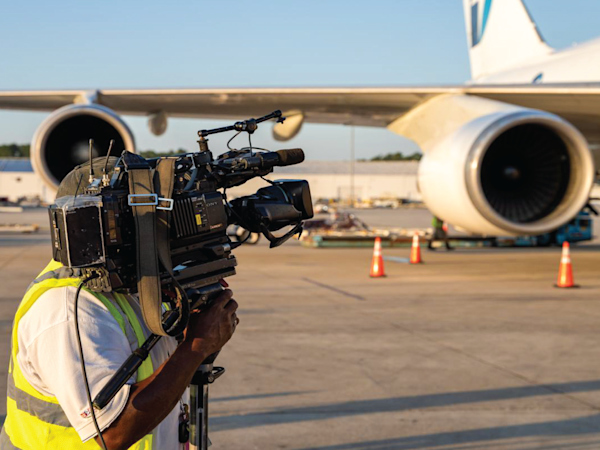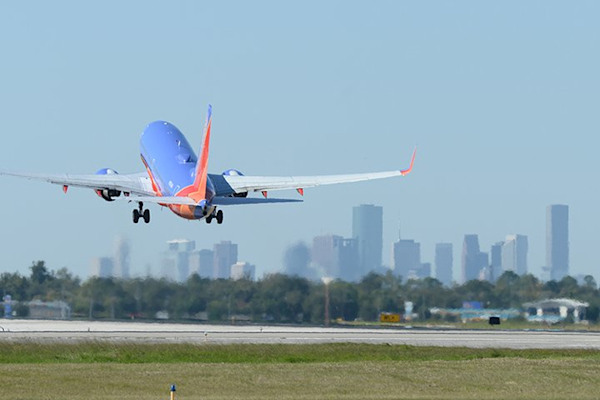Top Story
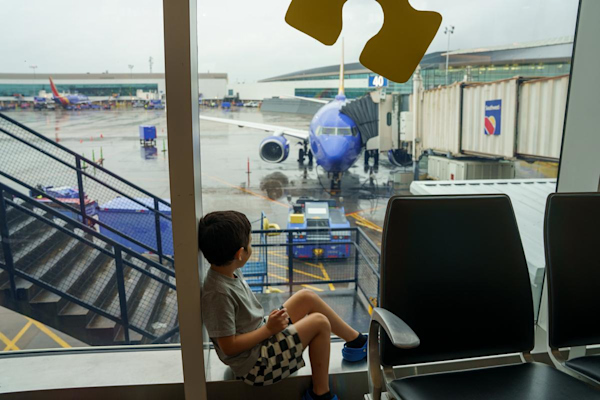
Top Story
'Wings for All' offers simulated flight, real confidence
It wasn’t your typical airport drill. On a rainy April morning, Houston-area families walked through William P. Hobby Airport (HOU) not to catch a flight—but to prepare for one.
Wings for All, a nationwide program hosted in partnership with The Arc, Southwest Airlines, TSA and Houston Airports, offered children and adults with intellectual and developmental disabilities (IDD) a chance to rehearse the entire airport experience—from check-in to takeoff. Every available spot for the free event was filled within a day, underscoring the region’s growing need for inclusive travel resources.
“We have one family hoping to go to the Philippines. Others want to visit grandparents. This event makes those dreams possible," said Laura LaVigne, CEO of The Arc of Fort Bend County.

Created by The Arc, the Wings for All program gives families and aviation professionals the confidence to take to the skies with ease. Through a hands-on airport rehearsal and a presentation on aircraft features and safety protocols, the event provides a sensory-rich preview of the airport journey—without the stress of actual travel. For families navigating anxiety, sensory sensitivities or mobility limitations, that kind of exposure can turn apprehension into empowerment.
“The airport is quite noisy and loud, and the ceilings are high. It’s often very scary for children with disabilities to maneuver a new environment like this,” said LaVigne. “So we have this practice session so they can come into Hobby Airport, see it, travel through it, and get used to it. Then they're more able to go on a vacation with their parents.”

“This is personal for me, not just as a leader at Houston Airports, but as a mom,” said Kelly Woodward, chief operating officer of Houston Airports. “We created Houston’s first-ever airport sensory room at George Bush Intercontinental Airport (IAH) in 2023 because I knew what a difference it could make for my own son. Wings for All builds on that mission—it helps families practice, prepare and feel empowered to travel.”

During the event, participants received boarding passes, passed through TSA security, waited at the gate and boarded a Southwest Airlines aircraft that remained grounded. Trained airport, airline and TSA personnel collaborated to support each step of the experience.
“Houston Airports, TSA, and Southwest Airlines do the heavy lifting,” LaVigne added. “We bring the families, but they run the event. And today was the largest group we’ve ever had—nearly 80 participants.”

“We’re not just modernizing infrastructure—we’re modernizing the entire travel experience to make it more human,” Woodward added. “Events like this remind us that world-class service starts with meeting people where they are, and making sure every journey begins with dignity and care.”

Wings for All also provides an opportunity for aviation professionals to interact with people with intellectual and developmental disabilities in a structured environment, allowing them to strengthen disability competency and refine services for all passengers. The program, originally developed by The Arc’s Charles River Center and the Massachusetts Port Authority, has been replicated across the country to promote more inclusive air travel.
“This was our very first Wings for All event at Hobby Airport—and it was fabulous," said LaVigne. "Everybody was a pro. Everyone just kicked in and did their job.”

Houston Airports has made significant strides in accessibility over the past year, including launching the Hidden Disabilities Sunflower Lanyard program at both HOU and IAH, training more than 1,300 employees in disability awareness, and opening a second sensory room at IAH in Terminal D in 2024.

April is Autism Awareness Month, but for Houston Airports, accessibility is a year-round priority. As families exited the aircraft, high-fives, hugs and a few joyful tears filled the gate area. For many, it wasn’t just a practice run. It was a breakthrough.

RELATED | Every journey matters: How Houston Airports supports travelers with autism
EXPLORE | Play areas, quiet spaces and sensory rooms at IAH
EXPLORE | Play areas and quiet spaces at HOU
LEARN MORE | Hidden Disabilities Sunflower Lanyard Program
